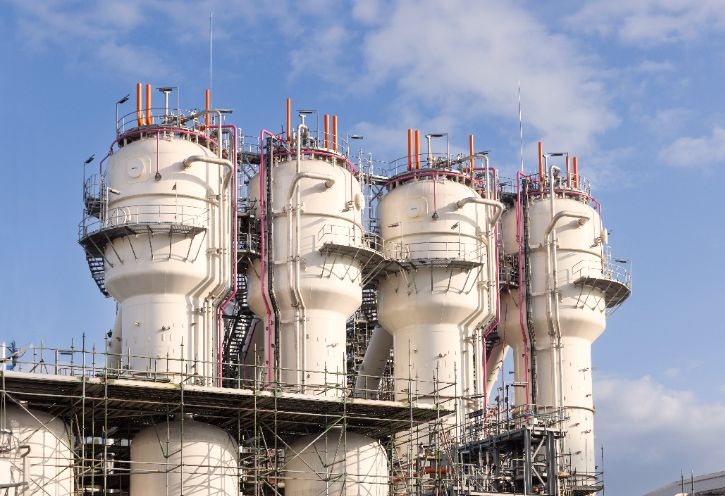Steelanol: Current status
ArcelorMittal Belgium is working on an ambitious CO₂ roadmap to become climate neutral by 2050. A key component of this plan is the Steelanol plant, which converts CO from blast furnace gases into ethanol. Although the project is technologically promising, current regulations make it difficult to make the project profitable. ArcelorMittal Belgium is therefore continuing its dialogue with policymakers at the Flemish, Belgian, and European levels to find solutions.
Climate Ambitions of ArcelorMittal Belgium
The CO₂ roadmap of ArcelorMittal Belgium is based on three pillars:
- Further improving energy efficiency (eliminating energy losses, maximizing reuse of residual heat, further expanding renewable energy capacity, etc.)
- Green Primary: circularity (increasing scrap usage) and electrification are top priorities.
- Development of Smart Carbon concepts within the circular economy, such as replacing fossil carbon with circular carbon, converting waste wood from recycling parks into biochar via the Torero plant, converting CO from our gases into ethanol via the Steelanol plant, and underground CO₂ storage.
Decarbonisation: A Combined Approach
ArcelorMittal Belgium serves as a testing ground for new technologies. The largest investment to date is the Steelanol plant, with an investment of €215 million. We are convinced that all technologies must be combined to reduce our CO₂ emissions, as no single technology can bring emissions to zero on its own.
Europe has focused heavily on green hydrogen in recent years, but this has not led to major projects due to the high cost of green hydrogen and the limited availability of green electricity. It will take many years before green hydrogen becomes economically viable.
Therefore, we need alternatives like the Steelanol plant. The decision to build this facility was made by the ArcelorMittal Group in 2017. We have already produced small volumes of ethanol, but we are still in the start-up phase. All parties involved are working hard to resolve technical issues, for which we are very grateful.
Regulatory Challenges
Another challenge is European regulation. Since the 2017 decision, many new regulations have been introduced, which are not favourable for Steelanol.
We sell ethanol to the chemical sector (perfume, solvents, etc.) and the fuel market (blending with fossil fuels). Since summer 2024, we have had a sustainability certificate for supply to the chemical sector. However, we still do not have this for the fuel market.
Blast Furnace B uses fossil coal and biocoal from the Torero plant. A portion of the blast furnace gas is processed by Steelanol. We have two objectives:
- Production of bioethanol in proportion to the amount of biocoal used in the blast furnace. For calculating the amount of bioethanol, Europe uses current regulations, which were published after the decision to build the Steelanol plant. Under these rules, we achieve only very low percentages of bioethanol—much lower than originally estimated.
- Production of recycled fuel, in proportion to the amount of fossil coal used in the blast furnace process. To have ethanol recognised as recycled fuel, we must demonstrate that its CO₂ footprint is at least 70% lower than an external fossil reference. This calculation must include the electricity no longer produced (Steelanol uses part of the gas to make ethanol, which is no longer available for Engie’s power plant). Because Steelanol is connected to the Belgian electricity grid (which still has a relatively high CO₂ footprint), we do not meet this target. If Steelanol were connected to the French grid (which has a low CO₂ footprint due to many nuclear plants), we would meet the target.
ArcelorMittal Belgium expected that the CO₂ savings from Steelanol could be deducted from the total emissions of our cluster. This risks not being the case, because according to new regulations, this is only allowed if the CO₂ is stored for a very long period (centuries). Use in fuels does not count, as the CO₂ is eventually released during combustion. Yet, Steelanol does reduce total CO₂ emissions because our ethanol replaces fossil fuels. Even for ethanol sold to the chemical sector, we are not allowed to deduct the CO₂ emissions.
The difficulties in getting ethanol recognised as biofuel (when using biochar), as recycled fuel (when using fossil coal), and the fact that we cannot count the CO₂ savings from Steelanol, make it very difficult to make the project profitable—despite its great potential.
ArcelorMittal Belgium will continue its dialogue with policymakers at all levels (Europe, Belgium, Flanders) in the coming months to find a solution.



